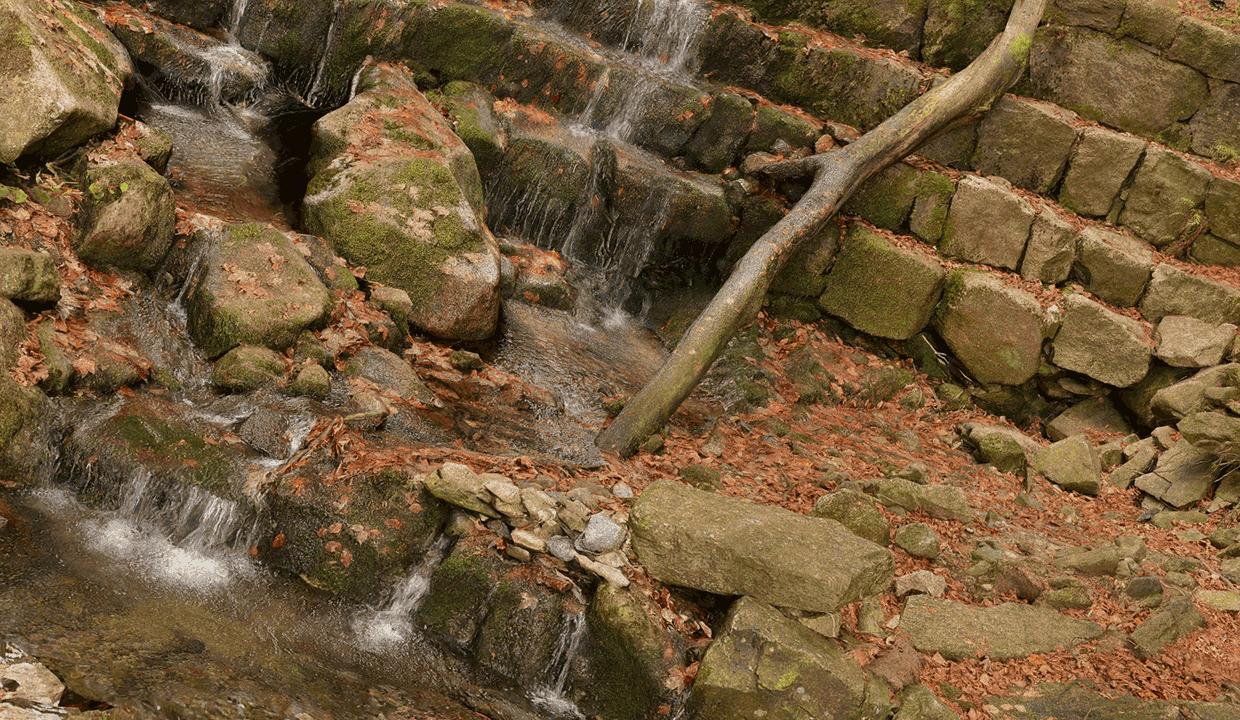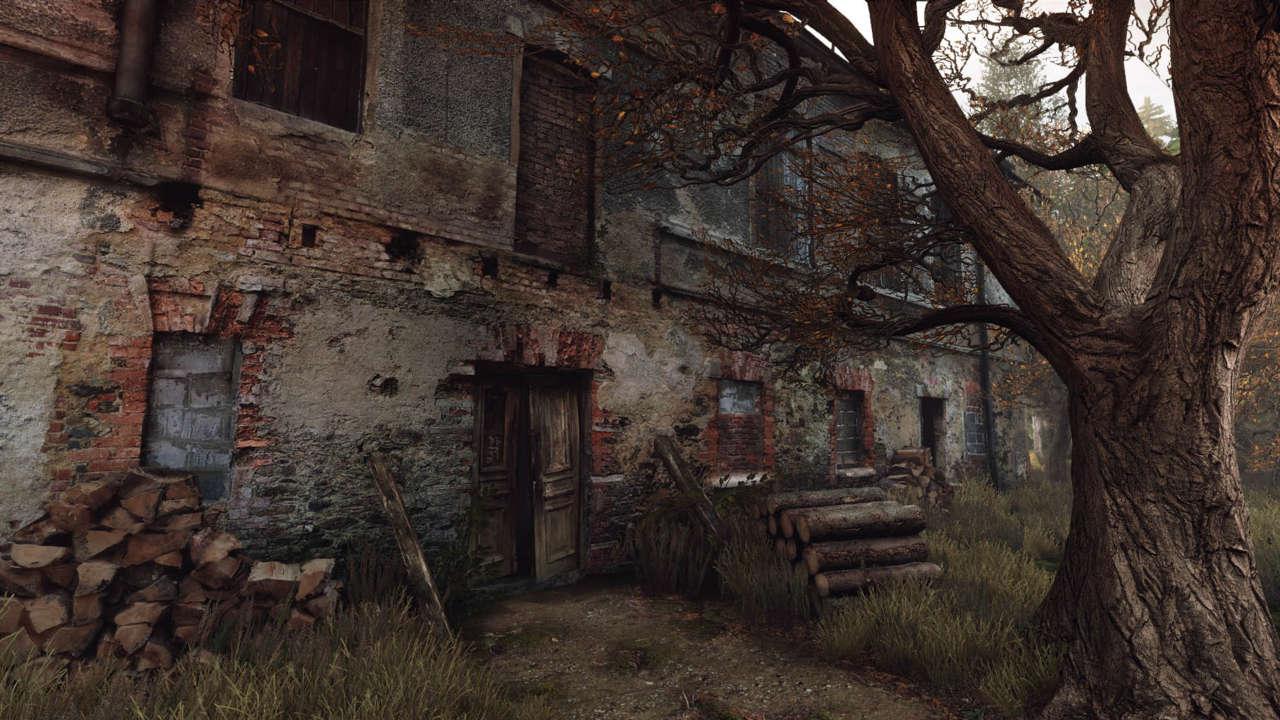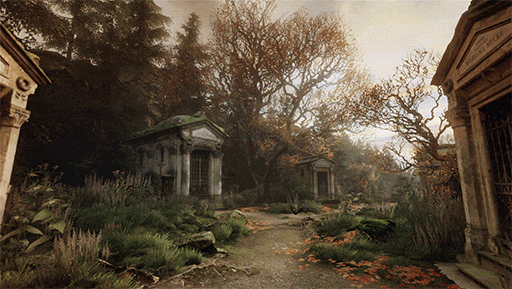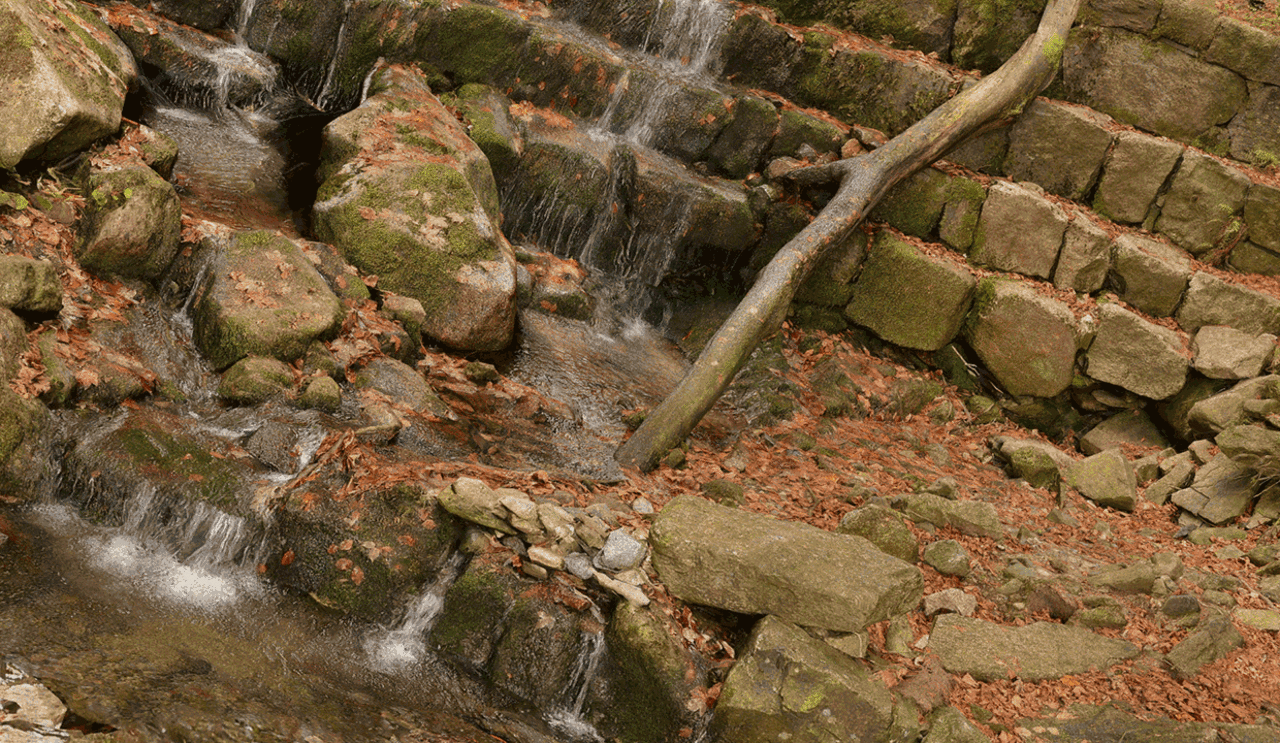PC Gamer
You are Paul Prospero, a private detective with supernatural powers. When you ‘sense’ parts of a crime scene, whether it’s a pool of blood, a body part, or something more innocuous like a rock, shimmering portals will appear and reveal clues and past events that you then piece together to solve the mystery. The Astronauts say they trust players, and clues won’t be obvious. You’ll actually have to do some legwork to find them, then connect them to the rest of the scene.
The setting is Red Creek Valley, a vast stretch of countryside in the midwest of the United States. In my demo I see Prospero explore a misty wood, before emerging into the sunlight of a vibrant, forested valley. The dense, natural-looking foliage is particularly good, swaying realistically in the wind. It’s an open world, so anything you see in the distance can be explored, and the scale is dizzying. Exploration is a big part of the game, and The Astronauts are littering their environments with optional clues and story elements to reward players who take the time to poke around this amazing landscape.
When you find a clue, Prospero won’t do the old adventure game thing of announcing what it is. Instead of a VO saying “Hmm, looks like a blood stain”, words will pop up visualising his thought process: fresh, animal, clean ground, few days, accident. His powers can also be used to locate items that will help solve the case. In one example he notices a divot where a rock used to be. He sense it, and a portal shows him its location. When he finds it, it’s covered in blood and explains what was used to fracture the skull of a murder victim he’d found earlier. The visions only show a small area of where these objects are, so you’ll have to study their immediate surroundings to track them down in-game.
It doesn’t feel completely organic, but it’s a better approximation of being a detective than most games manage. Once a scene has been investigated, you have to order your clues chronologically to solve the murder. This is done through a menu, which jars a little with how elegant the contextual interaction in the world is, but the demo I saw wasn’t even pre-alpha, so I’m sure they’ll tweak it. Even so, the progress they’ve made, especially for a small indie team, is really impressive.
Despite the weird paranormal bits, the game is nicely understated. It’s clear the developers are trying to create something slow and thoughtful, and the atmosphere is palpable. They say it’s a game to play in the dark with headphones.. The open world means you can explore at your own pace, with no pressure to solve the crimes and advance the story. They’ve even considered making it so that you can walk from the start of the game to the end without ever solving anything. They want you to take your time and savour the world, but you don’t have to if you’d rather just pursue the story.
There are definite hints of Alan Wake in Ethan Carter, with its marriage of idyllic American scenery and the supernatural. But The Astronauts say their biggest inspiration is weird fiction – a subgenre of speculative fiction made famous by H.P. Lovecraft and his dark, bizarre Cthulhu mythos. The game’s name, in fact, is inspired by Weird Tales magazine, to which Lovecraft was a frequent contributor, and whose stories’ titles used a similar format: The Affair of the Man in Scarlet, The Extraordinary Experiment of Dr. Calgroni, etc. This literary influence extends to the narration, which uses a familiar noir detective-style voiceover, and documents scattered around the environments.
The first in-game screenshots revealed !




















Log in to comment